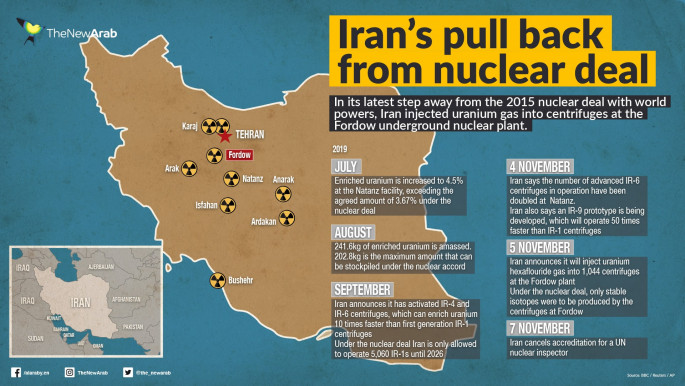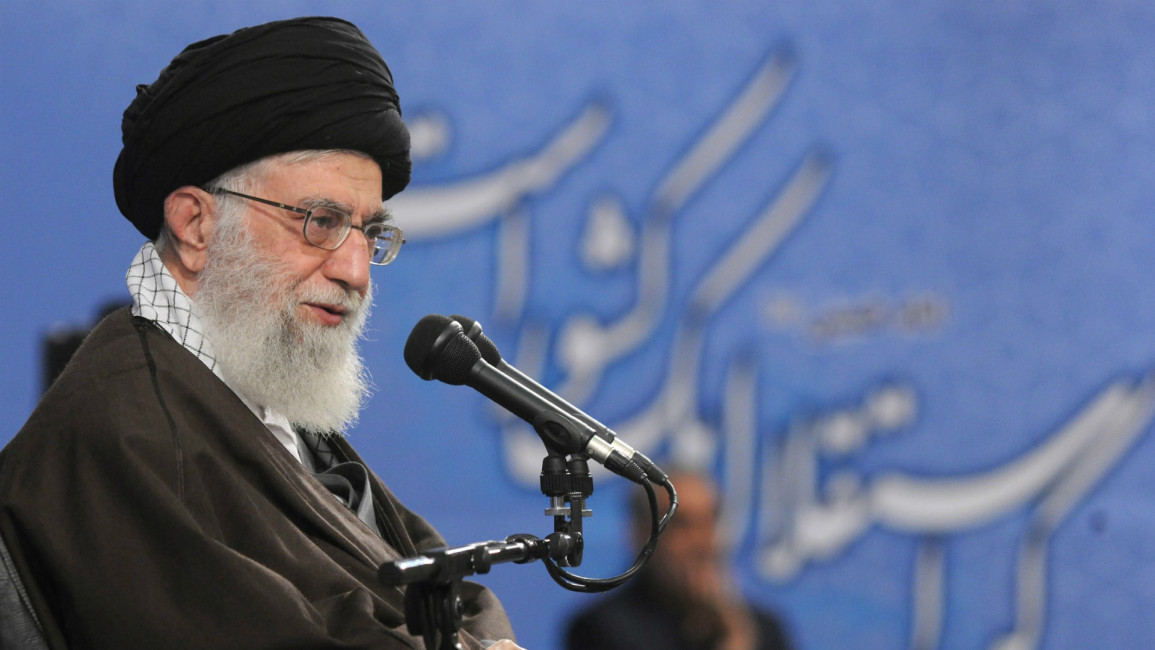Khamenei leads Friday prayers for first time since 2012 amid ongoing Iran crisis
The Islamic Republic's supreme leader addressed the "bitter accident" but said it should not overshadow the "sacrifice" of top Iranian general Qasem Soleimani, who was killed in a US drone strike earlier this month.
"The plane crash was a bitter accident, it burned through our heart," Khamenei said. "But some tried to... portray it in a way to forget the great martyrdom and sacrifice" of Soleimani, the head of the foreign operations arm of Iran's Revolutionary Guards.
Khamenei described the killing as "cowardly", and went on to condemn US President Donald Trump as a "clown" who only pretends to support the Iranian people.Trump will "push a poisonous dagger" into the nation's back, he said.
The last time Khamenei led Friday prayers at Tehran's Mosalla mosque was in February 2012, on the 33rd anniversary of the Iranian revolution and at a time of crisis over the Iran nuclear issue.
His return to the mosque comes at a similarly tumultuous moment for the country, with the nuclear deal under renewed debate in Europe after Soleimani's killing, which prompted Tehran to retaliate against US military targets in Iraq with a volley of missiles.
The strike, which caused significant material damage, wounded 11 US troops, according to a statement by US Central Command released Thursday, which contradicted the military's previous assessment of no casualties.
President Hassan Rouhani has stressed that Iran "is working daily to prevent military confrontation or war", and maintained that a dialogue with the world was still "possible".
| |
Rouhani has implicitly acknowledged a crisis of confidence in authorities amid protests in Iran, but called on Wednesday for "national unity", better governance and greater pluralism.
On Thursday, the president also defended the policy of openness that he has pursued since his first election in 2013, and which Iran's ultra-conservatives criticise.
"Of course, it's difficult," he acknowledged, but added, "the people elected us to lower tensions and animosity" between the Islamic republic and the world.
That said, Khamenei, who maintains that the West is not trustworthy, bans dialogue with Trump.
Rouhani, who instigated the negotiations, made the comments while justifying his nuclear policy and Iran's progressive disengagement from the accord. He also stated his willingness to continue dialogue on the agreement.
Read more: Is Iran's nuclear deal still viable?
Tensions between Washington and Tehran have seemed to subside in the wake of the accidental downing of a Ukrainian passenger plane hours after Iran's retaliatory strikes, as Tehran was on high alert for US reprisals.
The tragedy killed 176 people, mostly Iranians and Canadians.
Protests against the plane's downing in Iran were met with "unlawful force", including the use of rubber bullets and tear gas, according to Amnesty International. Demonstrators had called for Khamenei's resignation.
 |
| [Click to enlarge] |
On Thursday, Rouhani said Iran's "daily enrichment" of uranium was currently "higher" than before the conclusion of the nuclear deal.
The US withdrew from the deal in 2018, re-imposing harsh sanctions on Tehran.
On Tuesday, Germany, the UK and France - the three European parties to the deal - announced they had triggered a dispute mechanism in response to the latest step back from the deal by Tehran.
Germany on Thursday confirmed a Washington Post report that the US had threatened to impose a 25 percent tariff on imports of European cars if EU governments continued to back the nuclear deal.
Iranian Foreign Minister Mohammad Javad Zarif accused the European parties of having "sold out" the deal to avoid trade reprisals from the United States, and said Trump was again behaving like a "high school bully".
Follow us on Twitter and Instagram to stay connected



